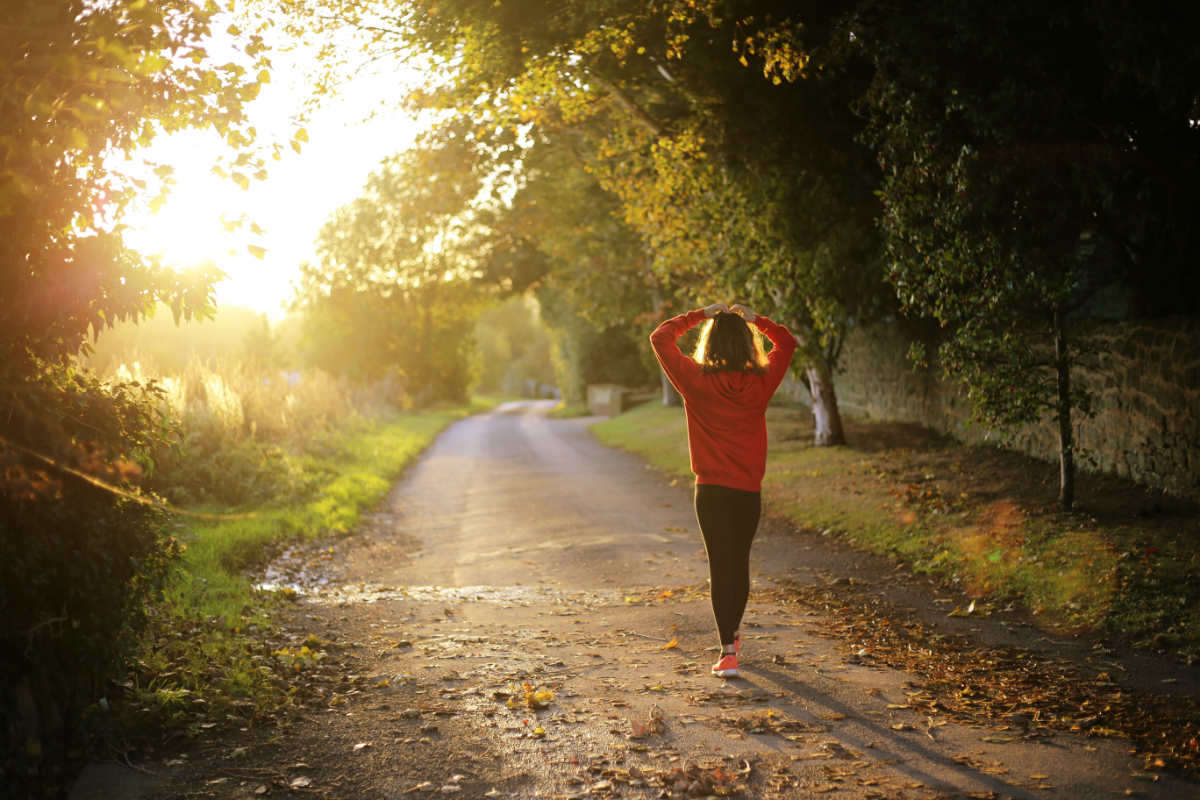Ever wondered about the benefits of walking on an empty stomach in the morning? It’s a question that stirs curiosity in many minds. Taking a walk before breakfast might sound ordinary, but its impact on your health can be quite remarkable.
When you walk before eating anything, you’re diving into a period when your body has been fasting all night. This unique time might influence your body differently.
Let’s explore the benefits of this simple practice. Walking in the morning, with no food in your system, may help burn stored fat and jumpstart your metabolism. It’s a gentle yet powerful way to kickstart your day with energy and positive vibes.
The Benefits of Walking on an Empty Stomach
1. Metabolic Magic of Fasted Walking:
When you take a walk on an empty stomach, your body switches gears in a fascinating way. Instead of using the immediate energy from the food you haven’t eaten yet, it taps into stored fat for fuel. Read on to know the range of exciting benefits that go beyond merely burning calories:
- Enhanced Fat Burning: Walking on an empty stomach seems to rev up your body’s ability to burn fat. Research indicates that fasted walking may increase fat utilization compared to walking after a meal. This boost in fat burning can be particularly helpful for individuals looking to manage weight or reshape their body composition.
- Improved Insulin Sensitivity: One of the perks of fasted walking is its potential to improve how your body responds to insulin. Insulin is a crucial hormone that regulates blood sugar levels. Walking on an empty stomach might enhance your body’s sensitivity to insulin, which can be beneficial for those managing diabetes or aiming to prevent it.
- Increased Growth Hormone Production: Fasted walking has been linked to an increase in growth hormone levels. Growth hormone plays a key role in metabolism, muscle growth, and tissue repair. By engaging in fasted walking, you may experience elevated growth hormone production, which could contribute to improved athletic performance and overall fitness.
2. Improved Digestion:
When you take a walk before eating, it can help your belly work better and feel less uncomfortable. Let’s talk about how an empty stomach walk can help your body handle food easier, reduce bloating.
- Motility Boost: Fasted walking stimulates gastric motility, the contraction waves that propel food through your digestive system. This can lead to quicker and more efficient digestion, potentially reducing bloating, constipation, and discomfort.
- Blood Flow Redistribution: During exercise, blood flow shifts towards working muscles, temporarily away from your digestive system. However, with fasted walking, the lower intensity allows enough blood to reach both muscles and intestines, maintaining optimal digestive function.
- Gut Microbiome Activation: Walking can positively impact the composition of your gut microbiome, the community of microbes in your gut. A healthy microbiome plays a crucial role in digestion, nutrient absorption, and overall health. Studies suggest that increased physical activity can promote the growth of beneficial gut bacteria, further aiding digestion.
Also Read: Indoor Exercise Alternatives for Winters: Stay Active and Warm
3. Enhanced Mental Clarity:
Experience the power of fasted walking in sharpening your mental faculties. Here’s how this simple activity can elevate your cognitive abilities and grant you a clearer, more focused mind.
- Brain-Derived Neurotrophic Factor (BDNF): Fasted walking has been shown to increase BDNF levels in the brain. BDNF is a protein essential for learning, memory, and cognitive function. This boost in BDNF can lead to improved concentration, focus, and mental sharpness.
- Blood Flow and Oxygenation: Increased physical activity promotes increased blood flow throughout the body, including the brain. This increased blood flow and oxygen delivery to the brain can enhance cognitive function and improve alertness.
- Stress Reduction: Fasted walking can trigger the release of endorphins, natural mood-elevating chemicals. This can help reduce stress and anxiety, creating a calmer and more focused mind.
4. Reduced Inflammation:
Walking before meals might hold a secret to feeling better. It might help your body battle against issues causing discomfort, like heart problems or diabetes. Let’s explore how this easy walk might strengthen your body and reduce those pesky aches.
- Anti-inflammatory Molecules: Fasted walking can increase the production of anti-inflammatory molecules in the body, such as interleukin-10 and adiponectin. These molecules combat chronic inflammation, a major contributor to various diseases like heart disease, diabetes, and arthritis.
- Oxidative Stress Reduction: Physical activity helps scavenge free radicals, harmful molecules that contribute to oxidative stress and inflammation. Fasted walking, with its moderate intensity, effectively reduces oxidative stress, further lowering inflammation markers.
- Improved Insulin Sensitivity: Regular fasted walking can improve insulin sensitivity, meaning your body uses insulin more efficiently to regulate blood sugar levels. This can also positively impact inflammatory pathways, reducing overall inflammation.
Also Read: Why and How to Warm Up Before Exercising?
Essential Tips for an Effective Empty Stomach Walk

Oncе you undеrstand thе benefits of walking on an еmpty stomach, hеrе arе somе tips to prеparе yoursеlf for an еffеctivе walk and rеap all thе bеnеfits.
1. Gradual Progress: It’s essential to begin your walking routine at a pace that feels comfortable for you. Start with a pace that allows you to maintain a conversation without feeling out of breath.
As your body gets used to walking, you can slowly increase either your walking speed or the duration of your walks. This gradual approach helps your body adapt to the increased activity levels, reducing the risk of injury.
2. Hydration is Key: Before heading out for your walk, ensure you’re well-hydrated by drinking water. While walking, especially during warmer weather or longer walks, it’s essential to carry a water bottle and sip water periodically to stay hydrated.
Hydration helps maintain your body’s functions, prevents fatigue, and supports overall well-being.
3. Comfortable Attire: Choosing the right clothing and footwear is crucial for a pleasant walking experience. Wear breathable, moisture-wicking clothes that suit the weather conditions.
Comfortable, well-fitted shoes with proper arch support and cushioning can prevent blisters, foot pain, or discomfort during your walk. This way, you’ll feel more at ease and motivated to continue your walking routine.
4. Listen to Your Body: Pay attention to how your body feels during your walks. If you experience any discomfort, pain, or dizziness, it’s essential to listen to these signals. Stop and rest if needed, allowing your body to recover.
Pushing through discomfort can lead to injuries. Understanding your body’s cues helps you make necessary adjustments, ensuring a safe and enjoyable walking experience.
So, in Short
Making morning walks on an empty stomach a part of your routine isn’t just about taking a walk—it’s like giving your health a gentle superhero boost. But remember, being mindful and considering your health needs is key.
Before diving into this routine, especially if you have health concerns, chat with a healthcare pro. Embracing this simple yet mighty practice in your mornings is like saying, “Hello, healthier me!” It’s your little step towards a more vibrant and energized you!
Love Yourself


